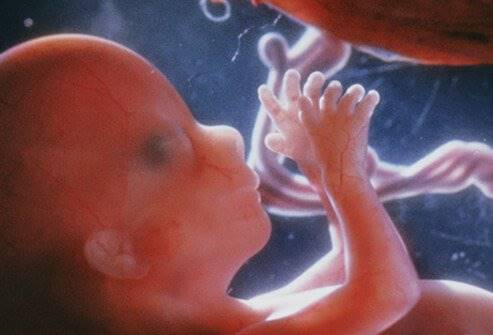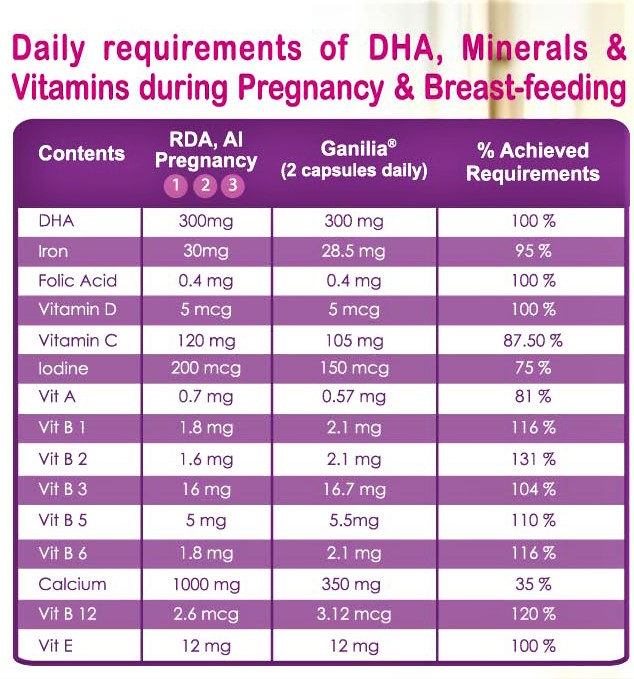Pregnancy
your pregnancy journey
During pregnancy your baby gets all the nutrients she needs from you. So you may need more during pregnancy than you did before pregnancy. Taking prenatal vitamins and eating healthy foods can help give you all the nutrients you and your baby need during pregnancy. Make sure your prenatal vitamin has folic acid, DHA, iron, iodine and calcium in it. Most have the right amount of each of these.
If you’re pregnant with multiples (twins, triplets or more), you may need more nutrients than if you’re pregnant with one baby. Your prenatal vitamin contains the right amount of nutrients you need during pregnancy.
Talk to your doctors and pharmacist for professional advice.
Welcome to Life
the little miracle that make your life complete.
Important Prenatal Vitamins
All nutrients are important, but these six play a key role in your baby’s growth and development during pregnancy:
*DHA
*Iron
*Folic Acids
*Calcium
*Vitamin D
*Iodine.

DHA
It has been known for a while that docosahexaenoic acid (DHA) plays a valuable role in children’s brain and eye development and is therefore important for women to consume during pregnancy. That’s one reason the American College of Obstetricians and Gynecologists recommends including limited amounts of fish in pregnant women’s diets since fish are a major source of this DHA.
DHA (Docosahexaenoic Acid) and EPA (Eicosapentaenoic Acid) are considered “essential fatty acids” in that they cannot be synthesized by the body, and therefore must be obtained from the diet. The human body needs to consume fat in all forms, in order to make brain and eye tissue, as well as cell membranes for every living cell in our body. Quality of fat is critical. The type of fat that is ingested by the mother will set the foundation for the structural integrity of nerve cells as well as the phospholipid membrane of every other cell in its body.
DHA is important for the development of the central nervous system in all mammals. There is an enormous growth spurt in the human brain during the last trimester of pregnancy and the first postnatal months, with a large increase in the cerebral content of Arachidonic Acid (AA) and DHA. The fetus and the newborn infant depend on a continual maternal supply of DHA and AA.
Studies show that the maternal supply of Omega-3 fats is being preferentially shuttled from the mother’s own supply during pregnancy, primarily from her brain, and is directly transported through the placenta to the developing fetus.
If a pregnant mother is not eating fish on a regular basis then she may not be getting enough Omega 3s and it will leave her feeling depleted. Women who eat enough fish during pregnancy or supplement with a high-quality fish oil product are less likely to suffer from post-partum depression.
Several clinical trials have demonstrated that children of women who took fish oil supplementation during pregnancy and while nursing had higher IQs than children whose mothers received a placebo. Additionally, researchers found that women who ate less than 12 ounces of fish or other seafood a week while pregnant were more likely to have children with verbal and other developmental delays than women who ate more than 12 ounces each week.
During Pregnancy, you need 300mg DHA each day to help your baby's brain & eye develop.
NOT ALL PRE-NATAL VITAMINS CONTAIN DHA
(check the package label)
FOLIC ACID
Folic acid is a B vitamin that every cell in your body needs for healthy growth and development. Taking folic acid before and during early pregnancy can help prevent birth defects of the brain and spine called neural tube defects (also called NTDs).
To help prevent NTDS, take a vitamin supplement with 400 mcg (0.4MG) of folic acid in it every day at least 1 month before pregnancy through the first 12 weeks of pregnancy. Take a vitamin supplement with 400 mcg (0.4MG) of folic acid each day, even if you're not trying to get pregnant.
During pregnancy & breastfeeding, you need 400 mcg (0.4MG) of folic acid each day to help your baby grow and develop.
Always consult your doctors, if you’re at high risk for having a baby with an NTD.
CALCIUM
Calcium is a mineral that helps your baby’s bones, teeth, heart, muscles and nerves develop. During pregnancy, you need 1,000 milligrams of calcium each day. You can get this amount by taking your prenatal vitamin and eating food that has a lot of calcium in it. Good sources of calcium include: Milk, cheese,yogurt, Broccoli and kale If you don’t get enough calcium during pregnancy, your body takes it from your bones and gives it to your baby. This can cause health conditions, like osteoporosis, later in life. In this condition, your bones become thin and break easily.
IRON
Iron is a mineral. Your body uses iron to make hemoglobin, a protein that helps carry oxygen from your lungs to the rest of your body. You need twice as much iron during pregnancy than you did before pregnancy. When you’re pregnant, your body needs this iron to make more blood so it can carry oxygen to your baby. Your baby needs iron to make his own blood. During pregnancy you need 30 MG (milligrams) of iron each day. Most prenatal vitamins have this amount. You also can get iron from food. If you don’t get enough iron during pregnancy, you may be more likely to: *Get infections *Have anemia. This means you have too little iron in your blood. *Be fatigued. This means you feel really tired or exhausted. *Have a premature baby. This means your baby is born too soon, before 37 weeks of pregnancy. *Have a low-birthweight baby. This means your baby is born weighing less than 5 pounds, 8 ounces.,
IODINE
Iodine is a mineral your body needs to make thyroid hormones. The thyroid is a gland in your neck that makes hormones that help your body use and store energy from food. You need iodine during pregnancy to help your baby’s brain and nervous system develop. The nervous system (brain, spinal cord and nerves) helps your baby move, think and feel. During pregnancy, you need 200 (MCG)micrograms of iodine every day. NOT ALL PRENATAL VITAMINS CONTAIN IODINE (check the package label), so make sure you eat foods that have iodine.
VITAMIN D
Vitamin D helps your body ABSORB CALCIUM. It also helps your body’s nerves, muscles and immune system work. Your immune system protects your body from infection. Your baby needs vitamin D to help his bones and teeth grow. During pregnancy, you need 5MCG of vitamin D each day. You can get this amount from food or your prenatal vitamin. Good sources of vitamin D include: Fatty fish, like salmon,milk,cereal, etc. Your body also makes vitamin D when your skin comes in contact with sunlight. But too much sun can lead to skin aging and cancer, so it’s a good idea to get your vitamin D from food or your prenatal vitamin.
UNIQUE ADVANTAGE OF GANILIA
Ganilia is a Comprehensive and Innovative formulation, with only 2 capsules a day to meet your daily requirementS during Pregnancy & Breastfeeding.
- COMPREHENSIVE : 15 Vitamins, minerals and DHA, all in 1 capsule.
-
INNOVATIVE: Ganilia MICROENCAPSULATED iron protects DHA from oxidation. It is better absorbed, with 2.7 times higher bio-availability compared to Ferrous Sulphate.
And, does not cause constipation and other gastro-instestinal disturbances (stomach upset). - MEET REQUIREMENT: 2 Capsules daily to meet almost 100% of daily requirement.
- HIGH QUALITY : Made in Germany.
-
REPUTATION: Trusted brand over decades.
- ENVIRONMENT FRIENDLY: Packaged in sustainable BIO-DEGRADABLE bottle to help protect OUR MOTHER EARTH.
What You Get

by taking 2 capsules daily, you meet daily requirement for Pregnant & Breastfeeding.
- Please consult your doctor and pharmacist for professional advice.
- The information provided herewith is general in nature and is not meant to replace proper consultation and follow-up by a healthcare professional.
- Every patient has special needs which require personalized attention.